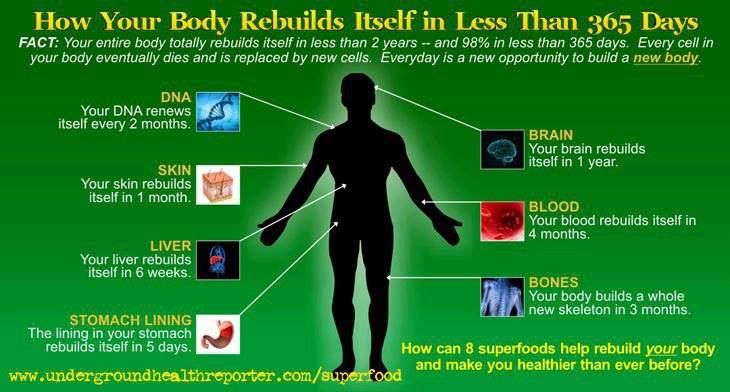HealthAndFitnessMostWanted.com...
Health and Fitness Programs, Solutions, Strategies & Training for Healthy Living...
We offer some of the best Health & Fitness Products and Services in the world and on the net today. We offer a lot of fun here and we make sure you'll have a great time, too. We do our best to keep our costs down. Come in and let us show you what we have to offer in the world of Health and Fitness today!
Our Products, Programs, Services, Solutions,
Strategies and Training are special...
Spend a day that's fun and exciting for you and treat
your body to the ultimate workout geared especially for you!
Welcome
Subscribe To Our
Health & Fitness Newsletter
Packed With Special Offers!
Defining Health and Wellness
Health encompasses a multifaceted state of complete well-being, including physical, mental, emotional, and social dimensions. It goes beyond the mere absence of disease or infirmity.
Key aspects of health
1. Physical health
The state of the body, its functioning, and freedom from illness or injury.
Encompasses factors like fitness levels, proper posture, organ function, and the ability to perform daily tasks without undue fatigue or discomfort.
Influenced by factors such as:
Exercise: Regular physical activity, including aerobic, strength training, bone-strengthening, and stretching exercises, improves cardiovascular health, builds strength, manages weight, and boosts mood.
Nutrition: A balanced diet rich in fruits, vegetables, whole grains, lean proteins, and healthy fats provides essential nutrients for energy, healing, and immunity.
Sleep: Adequate and quality sleep is crucial for physical and mental restoration and helps maintain a robust immune system.
Substance Use: Limiting or avoiding substances like alcohol, tobacco, and illicit drugs significantly reduces risks of chronic diseases and addiction.
Medical Self-Care: Includes addressing minor ailments, injuries, and seeking professional help for persistent symptoms.
Hygiene: Practices like regular handwashing, showering, and dental care prevent the spread of diseases.
Relaxation: Managing stress and finding time for relaxation can reduce physical symptoms like headaches and muscle tension, according to Study.com.
2. Mental health
Encompasses emotional, psychological, and social well-being, affecting how we think, feel, and act.
More than just the absence of a mental illness, it's essential for overall health and quality of life.
Fostering mental well-being includes:
Managing stress effectively through relaxation techniques and healthy coping mechanisms.
Building self-esteem and confidence.
Nurturing healthy relationships and fostering social connections.
3. Emotional health
Refers to how individuals think and feel, their ability to cope with life events, and their sense of well-being.
Involves acknowledging and processing various emotions experienced daily.
Can be improved by:
Developing emotional resilience and the ability to recover from negative experiences.
Practicing gratitude and focusing on positivity.
Seeking professional help when facing difficulties in managing emotions or coping with stress.
4. Social Determinants of Health (SDOH)
The non-medical factors that influence health outcomes and shape daily life conditions.
These include factors like:
Economic Stability (e.g., job opportunities, income).
Education Access and Quality.
Health Care Access and Quality.
Neighborhood and Built Environment (e.g., safe housing, transportation).
Social and Community Context (e.g., discrimination, violence, social norms).
Addressing SDOH is crucial for achieving health equity and ensuring everyone has a fair chance to achieve optimal health, according to the CDC.
Disclaimer: content published on our website is to inform and educate the reader only and is not a substitute for professional medical advice from your doctor or other health care provider. If you have a specific health question or concern you must consult with a qualified medical professional and in the case of an emergency, immediately contact your local emergency services. The publishers of this website and the content take no responsibility for any detrimental health issues or injuries that result from following advice found in articles, reports/overviews, or other content on our website. All opinions expressed on this website are the opinions of All Wellness Fulfillment, the owners of this website. Many products and services featured on this native advertising site are selected by our editors which means we may get paid commissions on many products purchased through links to retailer sites via native advertising, this is disclosed throughout all relevant pages of the site. All trademarks, registered trademarks, and service marks mentioned on this site are the property of their respective owners.
Health and fitness is not merely about physical appearance; it is about nurturing your entire being – body, mind, and spirit.
Imagine a life brimming
with vibrant energy, where every morning you wake feeling refreshed and
eager to embrace the day.
A life where you navigate challenges with resilience and grace, knowing you possess the strength to overcome any obstacle.
This is the life that prioritizing your health
can unlock.
Physical Fitness: An Overview
Physical fitness refers to the state of health and well-being, specifically the ability to perform daily activities, engage in sports or occupations, and respond to various situations without excessive fatigue. It is generally achieved through a combination of proper nutrition, regular exercise, and sufficient rest and recovery.
Components of physical fitness
Physical fitness is often categorized into several components, including:
Cardiovascular Endurance: The ability of the heart and lungs to deliver oxygen to working muscles during sustained physical activity, according to MIT Health. Activities like running, swimming, cycling, and brisk walking improve this component.
Muscular Strength: The maximum force a muscle or group of muscles can generate during a single contraction. Examples include lifting heavy weights.
Muscular Endurance: The ability of muscles to perform repeated contractions against resistance over time without fatiguing. Activities like high-repetition weight training or cycling improve this component.
Flexibility: The range of motion around a joint or the ability of muscles to lengthen. Stretching, yoga, and tai chi can enhance flexibility.
Body Composition: The ratio of fat mass to lean muscle mass, bone, and organs in the body. Maintaining a healthy body composition is crucial for overall health and is influenced by both exercise and diet.
Some classifications of physical fitness also include:
Balance: The ability to maintain equilibrium, whether stationary or in motion. Tai chi, yoga, and single-leg stands improve balance.
Agility: The ability to change direction and velocity quickly in response to a stimulus.
Speed: The ability to perform a movement quickly.
Power: The rate at which one is able to exert maximal force.
Benefits of physical fitness
Engaging in regular physical activity and maintaining a good level of fitness offers numerous benefits, including:
Improved Physical Health:
Reduced risk of cardiovascular diseases, high blood pressure, and type 2 diabetes.
Strengthened bones and muscles, helping to prevent osteoporosis and falls, particularly in older adults.
Better weight management and reduced risk of obesity.
Enhanced immune system function, potentially reducing the risk of serious outcomes from infectious diseases.
Reduced risk of developing certain cancers.
Improved Mental and Emotional Health:
Reduced feelings of anxiety and depression.
Improved sleep quality.
Enhanced cognitive function and brain health.
Increased energy levels and overall well-being.
Boosted self-esteem and confidence.
Opportunities for social interaction, improving social skills and connections.
Recommendations for physical activity
The U.S. Department of Health and Human Services recommends that adults get at least 150 minutes of moderate-intensity aerobic physical activity per week, or 75 minutes of vigorous-intensity aerobic activity, or an equivalent combination. Muscle-strengthening activities involving all major muscle groups should also be included at least two days a week.
Even small amounts of activity are beneficial, and breaking up sedentary periods with movement throughout the day can also contribute to overall health. It is crucial to choose activities that are enjoyable and to gradually increase the intensity and duration of activity over time, according to the CDC. People with chronic conditions or disabilities should consult with a healthcare professional or physical activity specialist to determine appropriate types and amounts of activity.
Conclusion
Physical fitness is a fundamental aspect of a healthy lifestyle, contributing significantly to both physical and mental well-being. By incorporating regular physical activity encompassing aerobic exercise, muscle-strengthening, and flexibility/balance into daily routines, individuals can improve their health, reduce the risk of chronic diseases, and enhance their overall quality of life
Benefits of Physical Fitness
The benefits of regular physical fitness are numerous, affecting both your physical and mental health. Here's a detailed overview from our perspective:
Physical health benefits
Reduced risk of chronic diseases: Regular exercise significantly lowers your risk of developing heart disease, stroke, type 2 diabetes, certain cancers (including colon, breast, bladder, kidney, lung, and stomach cancers), high blood pressure, and high cholesterol.
Improved cardiovascular health: Strengthens your heart muscle, improving its ability to pump blood and increase oxygen levels throughout your body.
Weight management: Helps prevent excess weight gain and assists in maintaining a healthy weight by burning calories and increasing your metabolic rate.
Stronger bones and muscles: Builds and maintains strong bones, muscles, and joints, reducing the risk of osteoporosis and falls, especially in older adults.
Better blood sugar control: Exercise can help your body manage blood glucose and insulin levels, reducing your risk of metabolic syndrome and type 2 diabetes, or helping you manage it if you already have it.
Increased energy levels: Boosts your energy and reduces fatigue by improving cardiovascular fitness and lung health.
Improved immune function: Physical activity can help strengthen your immune system, making you less susceptible to illnesses like the flu and potentially even reducing the risk of serious complications from diseases like COVID-19.
Better quality of sleep: Helps you fall asleep faster, sleep longer, and experience deeper, more restful sleep.
Enhanced functional ability: Makes everyday activities like climbing stairs, carrying groceries, or moving around easier, promoting independence, especially as you age.
Reduced pain: For individuals with chronic conditions like arthritis, exercise can help reduce pain and improve overall function and quality of life.
Mental and emotional health benefits
Improved mood and reduced stress: Exercise releases endorphins and other chemicals that act as natural mood lifters, helping to reduce stress, anxiety, and depression.
Enhanced cognitive function: Improves thinking, learning, and judgment skills, helping to maintain mental sharpness as you age and reducing the risk of dementia, including Alzheimer's disease.
Increased self-esteem: Achieving fitness goals and feeling better physically can significantly boost your confidence and self-esteem.
Better sleep: Contributes to improved sleep quality, which in turn positively impacts your mental and emotional state.
Opportunities for social interaction: Engaging in group fitness activities or sports can provide opportunities to connect with others and foster a sense of community.
In summary, regular physical fitness is a powerful tool for improving and maintaining overall health and well-being, contributing to a longer, healthier, and more fulfilling life.




























